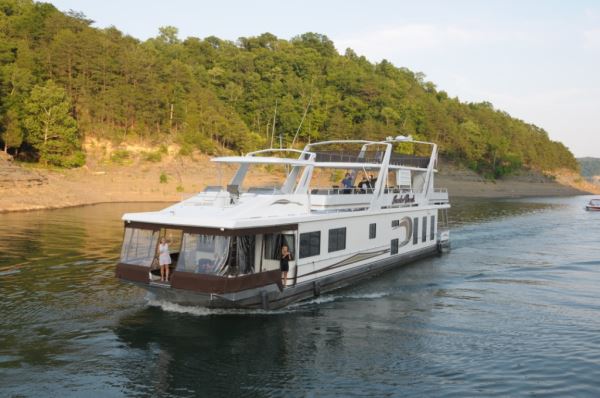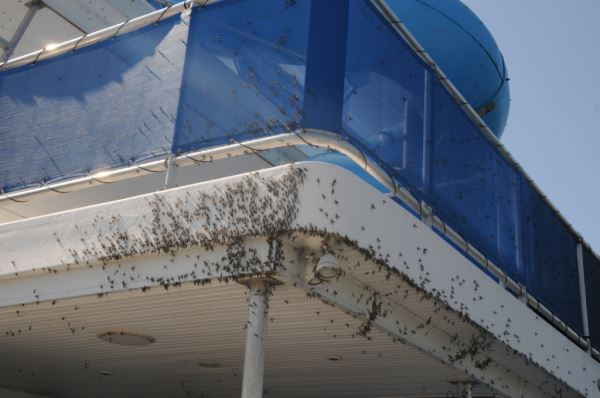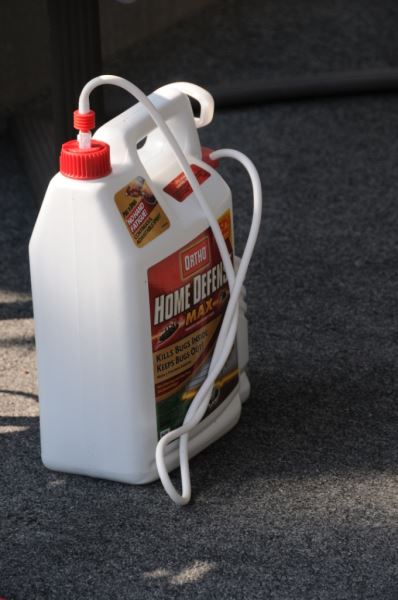
Hey you liveaboards! Having any trouble with winterization? It's never too late for some good old-fashioned advice! Janet Groene and Gordon Groene give their two cents (though it's worth much more than that) below to give you a hand with any problems you might be having:
How can you keep yourself and the boat safe and warm until spring? Even in the Sunbelt, winter can bring icy blasts. No matter where you dock, some preparations are in order. Here’s how:
 Even in warm areas such as South Florida, bugs and rodents sense the change of seasons and are on the move. While chewing their way into your boat they cause real damage and, once they establish themselves on board, things get worse. Be extra vigilant about bug treatments. Mice can get through the tiniest hole so secure places where rodents might have access. Step up use of baits, traps and/or rat guards. An old trick is to stuff steel wool in small voids where mice might enter. On a boat, use stainless steel wool to avoid ugly rust stains. Larger holes can be blocked with hardware cloth, commonly available in 1/8- to 1/4- inch varieties. Vinyl coated hardware is even better for marine use. Order it from WireClothMan.com.
Even in warm areas such as South Florida, bugs and rodents sense the change of seasons and are on the move. While chewing their way into your boat they cause real damage and, once they establish themselves on board, things get worse. Be extra vigilant about bug treatments. Mice can get through the tiniest hole so secure places where rodents might have access. Step up use of baits, traps and/or rat guards. An old trick is to stuff steel wool in small voids where mice might enter. On a boat, use stainless steel wool to avoid ugly rust stains. Larger holes can be blocked with hardware cloth, commonly available in 1/8- to 1/4- inch varieties. Vinyl coated hardware is even better for marine use. Order it from WireClothMan.com.- As soon as temperatures drop into the low 30s, water that collects in small nooks and crannies can freeze, expand and cause expensive damage. Keep limber holes clear and assure that places where water collects are thoroughly drained. For example, your on-deck shower won’t be used in winter and should be winterized.
- When closing off and winterizing any portion of the plumbing system that connects with the drinking water system (such as a deck wash system you won’t be using in winter), use food-safe antifreeze. Flushing alone can’t remove harmful chemicals.
- Icy decks can be deadly. Indoor-outdoor carpet strips provide a safer surface.
- Have at least one back-up way to heat the boat in case you lose shore power. Add CO monitors if you don’t already have them.
Domenic Mantoan spent winters in Baltimore, Md., onboard a 40-footer with fly bridge and aft cabin. Here are just a few of his tips. See many more at his website, BoatingCruising.com.
- Dom re-plumbed the boat with gray frost-resistant pipe and wrapped corners and Ts with insulated water pipe tape. Where pipes run through bulkheads and other areas, he used minimum expanding spray foam.
- Mantoan has two electric heaters, one in the main cabin and another in the aft cabin where the freshwater tank is located. In the engine room he added a “boat safe” (read spark-proof) engine electric heater and he put shrink wrap over engine compartment intakes to keep wind out.
- He added a second, 30-amp shore power inlet and electric panel. “Be sure to carry several Y adapters when you cruise,” he says. He has also used portable oil heaters and he believes an electric blanket is a plus.
- More insulation can be added with one-inch foam boards, epoxied in place, says Dom. “I am planning to install a temporary/removable self-contained solar heater with duct work coming and going through the forward hatch and head hatch,” he reports.
 Another valuable suggestion comes from Lee Gordon at Mercury Marine.
Another valuable suggestion comes from Lee Gordon at Mercury Marine.
“Winterizing a boat that’s used as a home can be very specific,” says Gordon.
Many plumbing systems are unique to the boat manufacturer, so he urges houseboat owners to contact their boatbuilders for winterizing tips specific to the individual boat. We won’t go into it here but also unique are instructions for winterizing engines and drive systems. It all depends on whether you’re laying up engines or keeping them operational through the winter.
Compromises have to be made when winterizing a liveaboard boat that also has to remain lean and green. Temporary insulation, cover and shrink wrap are the key, Mantoan says.
About the Authors
“Living Aboard” is a recurring column that focuses on living on your houseboat. Gordon and Janet Groene lived full-time on the go for ten years and they hold the NMMA Directors Award for boating journalism. Janet posts new galley recipes weekly at www.BoatCook.blogspot.com.